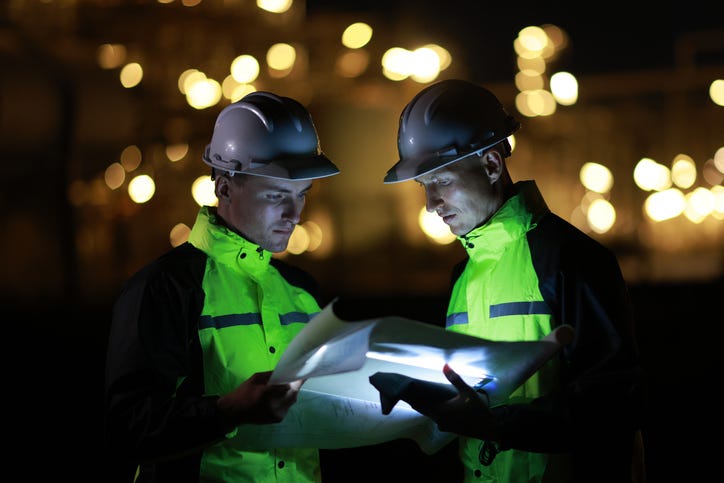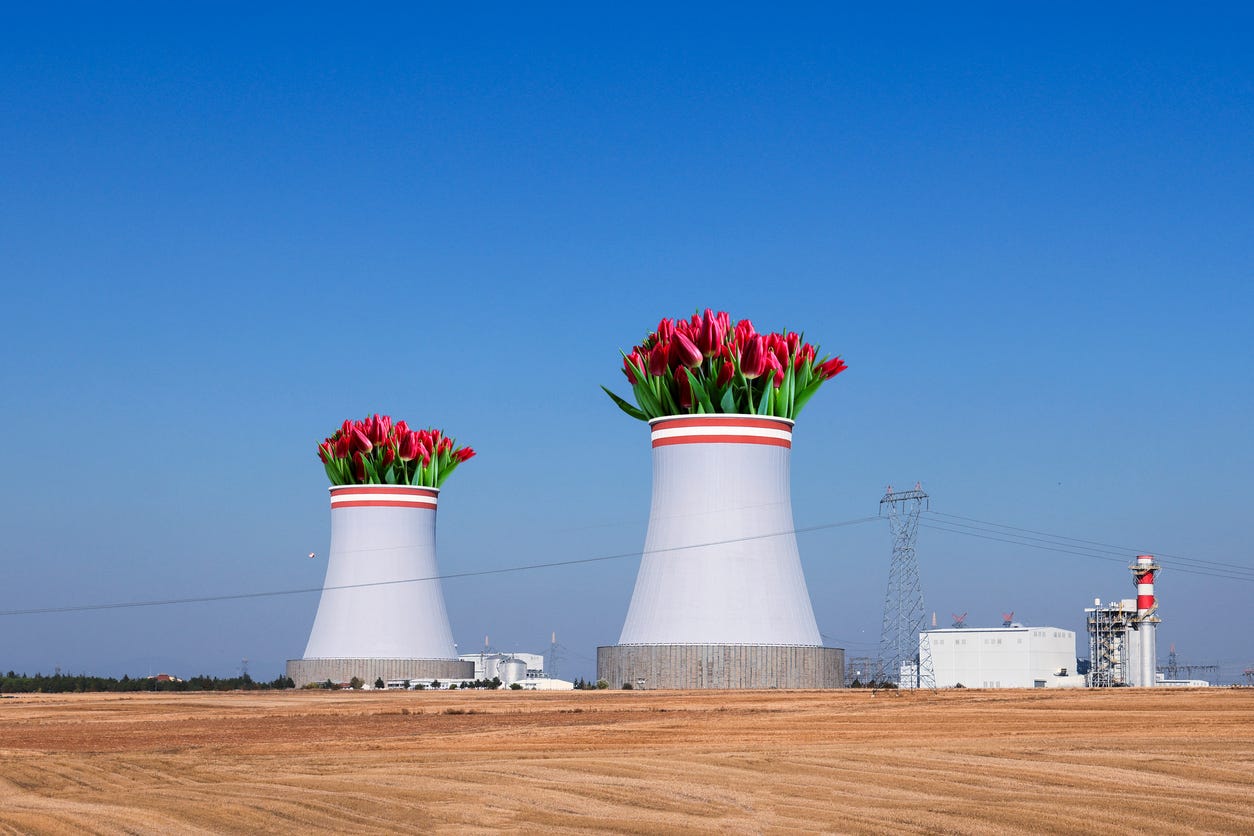Ten nuclear announcements for your week
Global progress in collaboration, commitment, and construction
Every few weeks, people online feel the need to tell me that the nuclear energy resurgence is over, and also every few weeks, I come across multiple reports that contradict this assertion. Here are ten new developments from just this month that prove them wrong.
#1 Bulgaria and the US team up on new reactors
Bulgaria has two nuclear reactors that generate about a third of the country’s electricity. In 2023, the Bulgarian government announced an energy strategy that included plans for two new reactors. This month, they have outlined that project, incorporating US technology and signing the first major contract toward making it happen. To be clear about the government’s intentions, Bulgarian Energy Minister Vladimir Malinov has stated that the nuclear project is ‘irreversible’.
#2 France and Kazakhstan strengthen nuclear cooperation
Kazakhstan doesn’t currently have any operating nuclear power plants, but 70% of its citizens voted in favour of new nuclear plants in a national referendum last month. Although Kazakhstan is the world’s largest uranium producer, it currently lacks the capacity to generate its own electricity.
Enter French President Emmanuel Macron, who has offered Kazakhstan support in developing a civilian nuclear energy program. President Macron and Kazakh President Kassym-Jomart Tokayev have now committed to strengthen ties between the two countries, with a particular focus on nuclear energy and economic cooperation.
In addition to building ties in the energy sector, the two countries signed several economic agreements, including a contract to supply electric locomotives and export critical minerals, which are essential for technological industries and the energy transition.
#3 TerraPower signs agreement for enrichment facility
TerraPower has taken steps towards the construction of a uranium enrichment facility in South Africa by signing an agreement with the advanced materials company ASP Isotopes Inc. to expand global production of high-assay, low-enriched uranium (HALEU). In exchange for investing in the facility in South Africa, TerraPower will purchase the HALEU it produces.
HALEU is a uranium enrichment process that uses lasers to separate uranium isotopes instead of the standard method of using centrifuges. The laser approach isn’t new, but if it can be commercialised, it will be much faster than building a standard enrichment facility.
#4 Malaysia pivots toward to nuclear energy
Malaysia once had a nuclear program that proposed building two nuclear power plants, but the plans were indefinitely postponed. In July of this year, Malaysia announced the goal of achieving 40% renewable energy capacity by 2035 instead. This month, the country has made a pivot toward nuclear energy.
What changed? The reality that we need more energy, not less, always kicks in eventually. Malaysia is rapidly expanding its data centres, which has made the government revisit the viability of its energy policy alongside meeting its net zero goals, beginning with a feasibility study to consider adding nuclear to the mix.
#5 Japan and US sign MoU to use technology in Poland
Poland currently has no operational nuclear reactors for power production, and the country operates a single research reactor, but it also has large-scale plans to develop nuclear energy capacity.
This month, the Japanese and Polish governments signed a memorandum of understanding on cooperation in nuclear energy, including exchanging information and technological support. Polish Prime Minister Donald Tusk has also said the country will seek financial partners to help fund the construction of a second nuclear power plant.
#6 German politicians look to restart decommissioned plants
Germany’s largest opposition party alliance has called for an expert assessment to re-evaluate the viability of nuclear energy, with a focus is on whether recently decommissioned nuclear power plants can be reactivated.
The Christian Democratic Union (CDU) and Christian Social Union (CSU) politicians have outlined their approach in the Energy Agenda policy paper, in which they call the nuclear phase out “an ideologically motivated and wrong decision”.
Germany shut down its remaining three nuclear plants in April 2023, and there will be a federal election in autumn 2025. A time of change for Germany…
7. Dutch cabinet calls to speed up nuclear power deployment
The Netherlands has one nuclear reactor that generates a small amount of its electricity. Now, the opposition party Christian Democratic Appeal (CDA) and coalition party People's Party for Freedom and Democracy (VVD) are pushing for new nuclear, calling on the cabinet to speed up the construction of more nuclear power stations.
The current debate is over how much new nuclear to build, with a majority of Dutch MPs in favour of increasing the number of power plants to four.
#8 Vietnam decides to restart nuclear
Vietnam has been on a journey - the country first considered nuclear power generation in 1995 and again in 2006, but in 2016, plans were shelved in favour of gas and coal.
Now, the Government is amending the Law on Electricity to allow the building and operation of nuclear power plants.
Earlier this month, legislators also pushed for the Ninh Thuan nuclear power plant to be restarted, and The Communist Party of Vietnam gave the proposal the go-ahead. They also have plans to build two nuclear power plants.
#9 Kenya moves forward with plans for its first plant
Kenya has plans to build its first nuclear power plant, and there is strong political support for this nuclear program due to an understanding of the need for energy security and increasing industrialisation. Kenya has now announced that it is on track to start construction on its first nuclear power plant by 2027. Watch this space though, because the usual suspects - Greenpeace among them - are lobbying heavily against the construction of the new power plant, making the usual ridiculous arguments.
#10 Brazil decides to extends a reactor
Brazil has two nuclear reactors, and after a long process of assessment that began in 2019, Brazil has just announced that it will be extending the Angra 1 nuclear power unit. The plant went online in 1982 and supplies a city of two million people. A plan has been released to demonstrate how it will be upgraded in line with international standards.
These are just a few examples of some of the progress in the global nuclear arena that has taken place in just this last month. For those of us keeping an eye on new developments, there is a clear upward trend in countries all over the world, regardless of politics, economic power, standing and wealth. From Europe to the East, in strong economies and burgeoning ones, nuclear is on the rise. No amount of naysayers disagreeing about it is going to change that.






Uganda too https://www.monitor.co.ug/uganda/news/national/busoga-kingdom-gives-govt-terms-for-buyende-nuclear-plant-4829106
Plus we’re approaching 150 advanced reactors being developed around the world. Nuclear energy stocks are soaring. BUT, now Emmet Penny, and other prominent nuclear advocates warn about over promising what nuclear energy can do and how fast it can be built. I tell my friends (they all ask me for advice :-) , “If you tend to be naive, nuclear energy is your safest bet.” We’ve gone from nuclear energy on its death bed pre-COVID, to it being a silver bullet. Nuclear energy is the future because its fuel is dense and we need to be realistic about how long that transition may take (100 years or more - a blink of an eye). But certainly, the days of nuclear is dead - is dead.